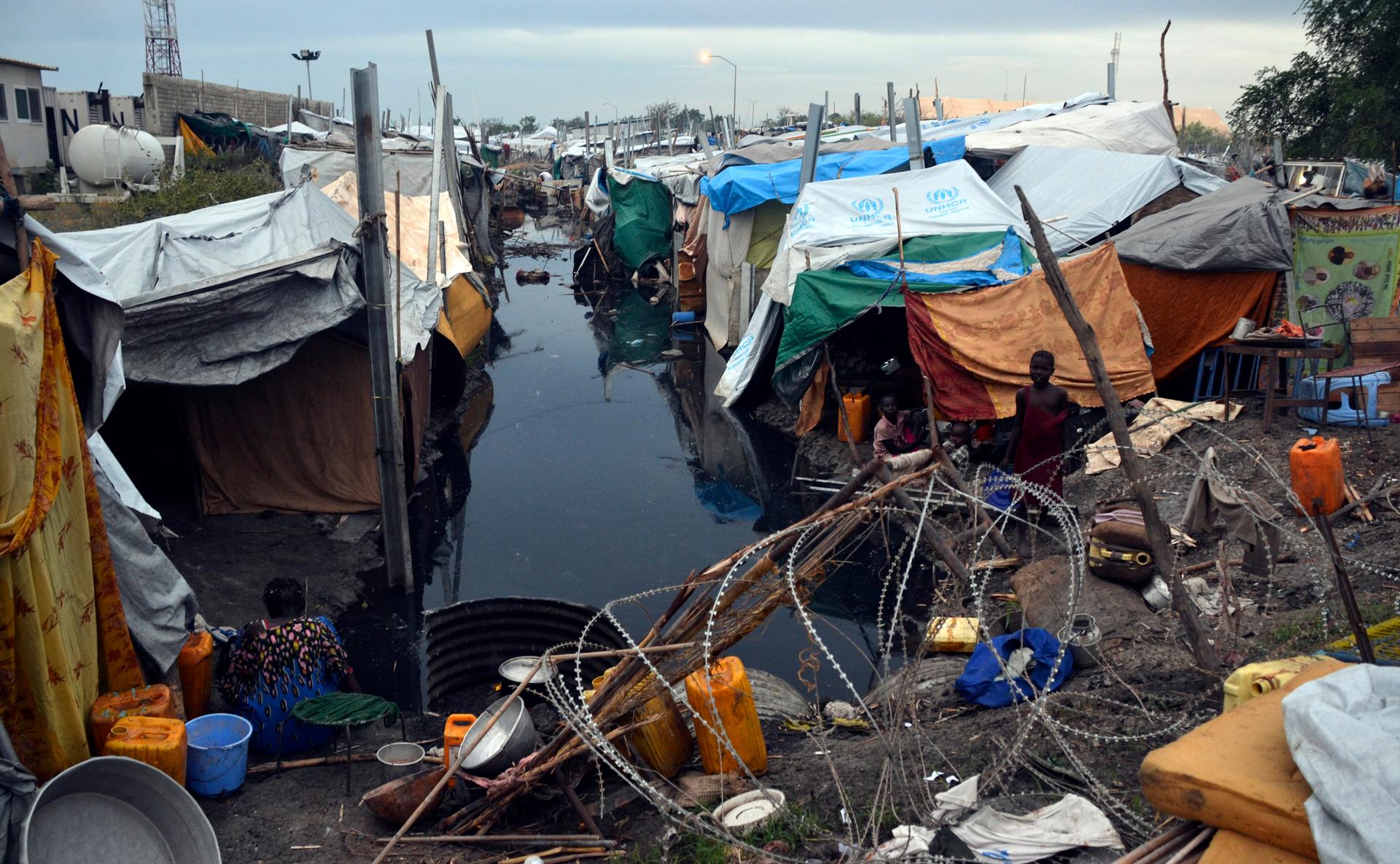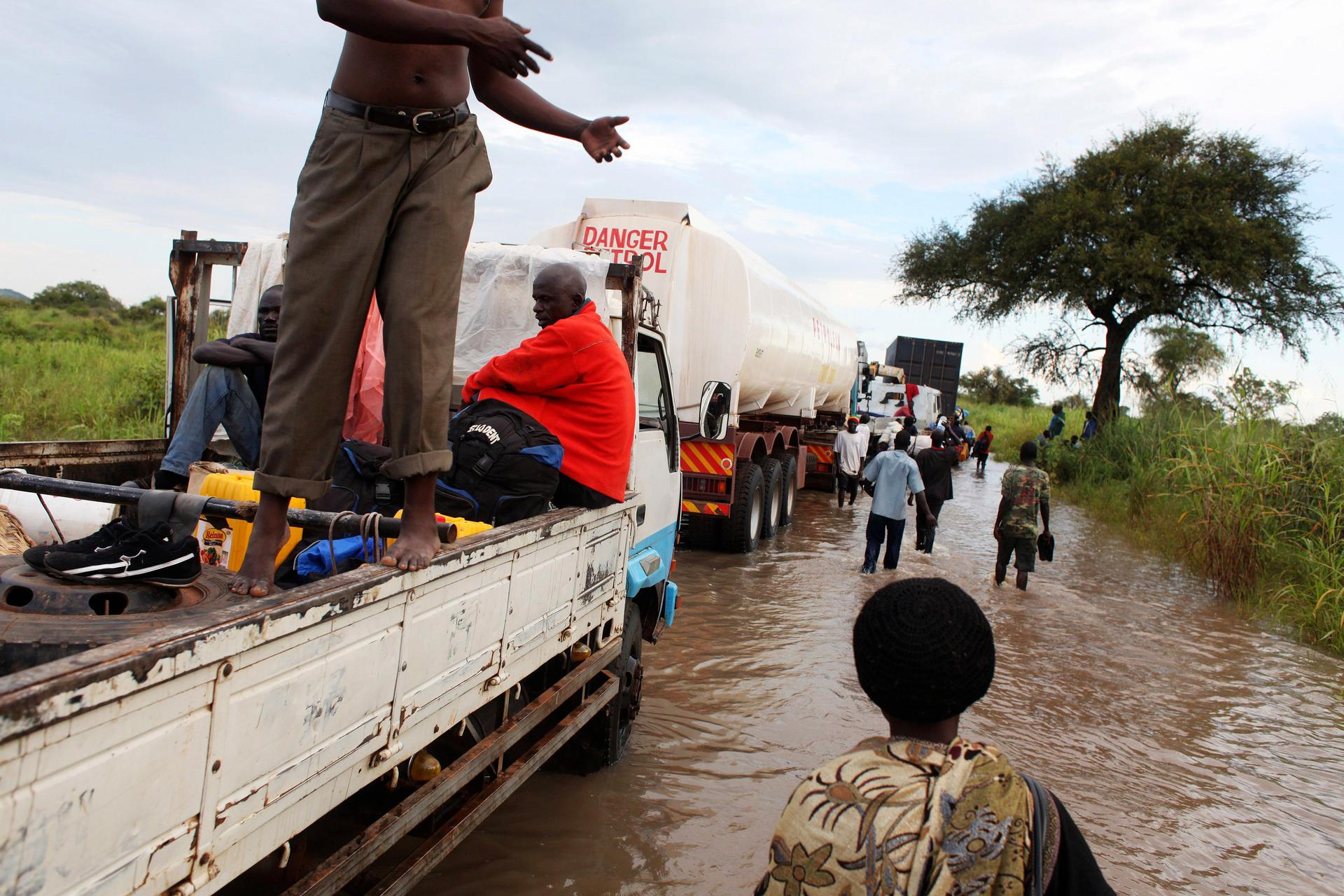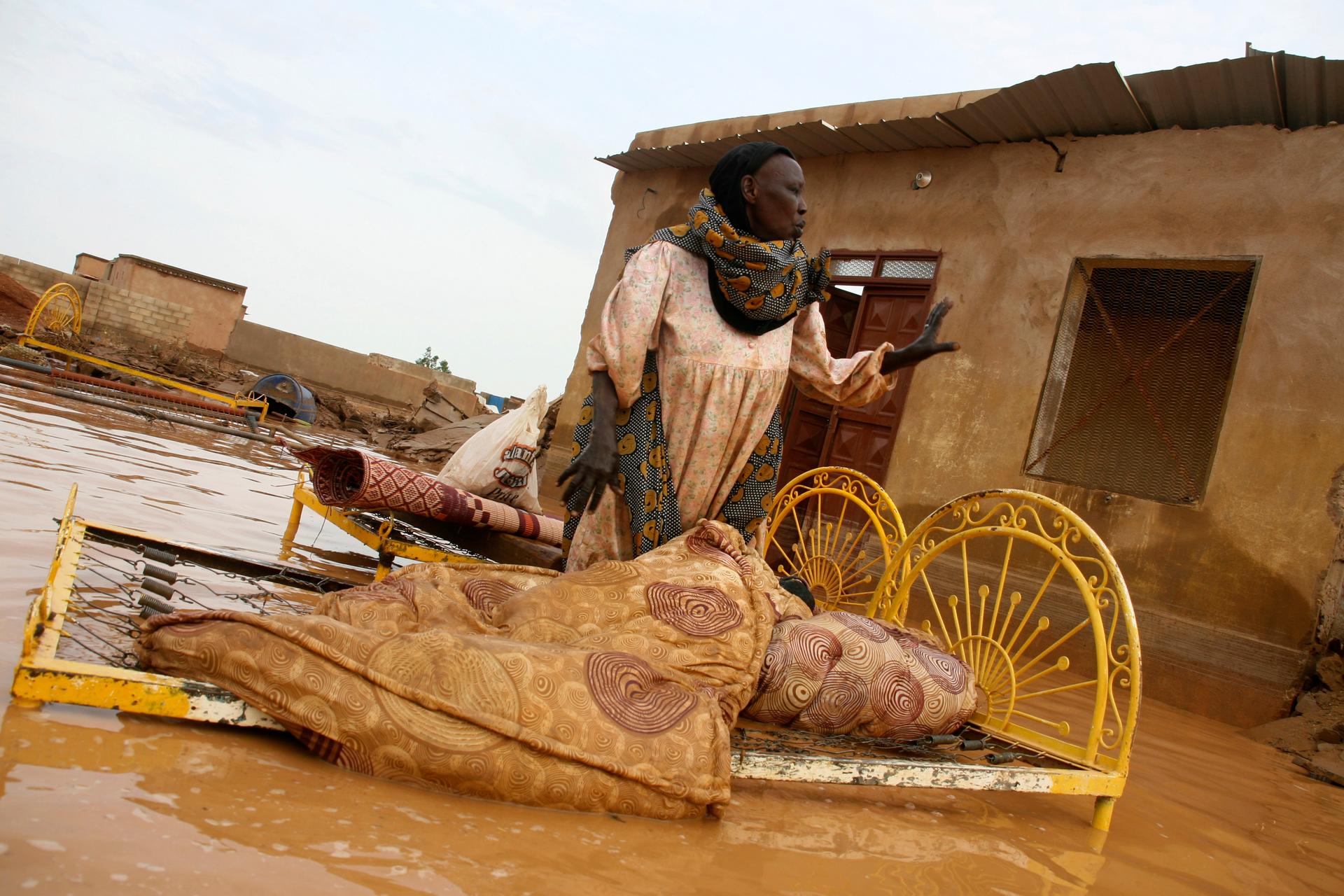Aid workers struggle to help people made homeless from Sudan floods
A woman perches on a bed frame amidst flood waters in Salhaa, Omdurman, Sudan on July 30, 2014.
Aid workers are struggling to get hundreds of tons of aid to people made homeless by widespread flooding in Sudan after torrential rains severed a highway and other roads.
Trucks and vehicles loaded with relief supplies and construction materials were stranded in the eastern state of Kasala as authorities battled to repair damaged roads, an AFP correspondent said.
Aid workers said it would be days before relief reached all of those affected by the worst flooding to hit the impoverished region in years.
"The main problem we now face in delivering aid is how to reach those affected," said Hussain Saleh, an aid worker with Kasala-based NGO Tlawaiet.
"The highway has been cut and other rural roads are also damaged, making it difficult to reach villagers stranded in remote areas."
"The only way to reach them is by helicopter, and that's very expensive for local NGOs like us."
Aid workers said relief was arriving but that NGOs and government officials were unable to forward it.
Kasala, bordering Eritrea, was one of the worst areas hit after the river Gash burst its banks, flooding villages miles away.
Thousands of houses were destroyed and several villages submerged after heavy rainfall killed at least 100 people nationwide, including 25 in Kasala.
Floodwaters severed the main highway connecting Kasala to the city of Port Sudan, and also inundated a railway line that crosses the region.

Fears of diseases
"We are worried about the impact of the disaster on the health of those affected," said Saleh.
"We have already been to some areas where people have fallen sick."
An aid worker with an NGO working in the healthcare sector said there was a steady rise in cases of malaria in villages swept by water.
"We don't have enough medical staff and transporting medicines is a big problem because the highway is cut," he said on condition of anonymity.
"So far we have been unable to reach villages that are submerged in water."
Kasala governor Adam Jamaa told AFP that aid was already reaching those affected.
"Right from the beginning we had the situation under control," Jamaa said.
"We have provided food, shelter and medicines to the affected people. We are satisfied with what we did."

No sign of aid
However, there was no sign of humanitarian workers or relief supplies in several affected areas toured by AFP over the past two days.
Hundreds of families continue to live in makeshift grass tents or in the open alongside badly damaged roads as their home villages are still under water.
"It's been 10 days now. Nobody has brought drinking water or food for us," said Tahir Osheikh, whose village is 70 kilometres (45 miles) from the Gash river.
His family, like hundreds of others, has had to survive on muddy rainwater.
"Our entire stock of food is lost. We want to buy sorghum, but we would have to go to Kasala city and that's very expensive," Osheikh said of the staple food in Sudan.
Behind him his wife collected dirty water in a cooking pot, and some children drank from it.
The damage was widespread and severe in Kasala, where most of the houses destroyed were made of mud and bricks.
United Nations aid agencies had already warned of the danger of flooding in Sudan between July and November.
The most affected states are Kasala, Sennar, South Kordofan, West Kordofan and North Darfur, the UN Office for the Coordination of Humanitarian Affairs (OCHA) said on Tuesday.
It said heavy flooding since early June has affected more than 161,000 people and destroyed over 14,000 houses in many parts of Sudan.
"Tonight me, my children and my wife will sleep on the ground under the sky," said Mohamed Issa, another homeless villager from Kasala.
He said his children were afraid of sleeping outside in the dark.
"Our neighbor's child died after he was bitten by a snake in the night," Issa said.
"There are many snakes in the rainwater. It's not safe."
Kasala — inhabited mostly by farmers — has seen floods in the past, but residents said this year's had been the worst ever.
"The floods submerged our crops and killed our livestock," said Osman Ali.
"We're living under the sun, sleeping on the ground and wearing the only clothes we have."
The story you just read is accessible and free to all because thousands of listeners and readers contribute to our nonprofit newsroom. We go deep to bring you the human-centered international reporting that you know you can trust. To do this work and to do it well, we rely on the support of our listeners. If you appreciated our coverage this year, if there was a story that made you pause or a song that moved you, would you consider making a gift to sustain our work through 2024 and beyond?
